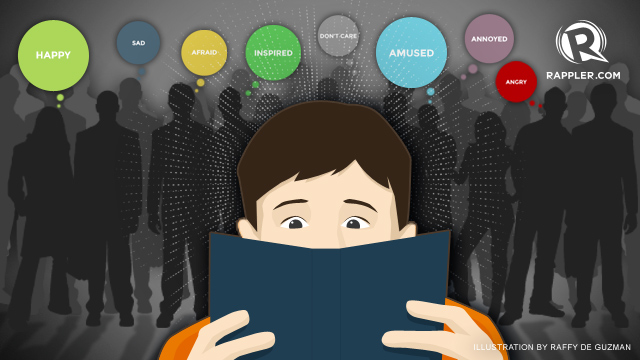SUMMARY
This is AI generated summarization, which may have errors. For context, always refer to the full article.
 What book are you reading now? Chances are, if you are reading literary fiction, you stand a good chance of improving your ability to read other people’s emotions.
What book are you reading now? Chances are, if you are reading literary fiction, you stand a good chance of improving your ability to read other people’s emotions.
I am currently reading Ian McEwan’s latest novel, “Sweet Tooth,” to accompany me on a long trip. I take my time when I read a novel because I do not want to miss not just the story but the way it is written. Great novelists write with the inked mass of their souls – their deepest imaginings kneaded with shadows of their life incarnate or of others’, blended in human drama. They make me suspend, with utmost pleasure and unbridled voluntarism, my hold on my own life, whether it be on the transient emergencies of my boarding gate or even on what worries or delights me thinking of my destination. But when I resume my life, my own life, after “Sweet Tooth,” what could have changed?
In 2011, a researcher named Keith Oathley wrote an article in the November/December issue of the Scientific American that shared the findings of a study that he and his colleagues conducted with people who read short stories. Under MRI, the brains of the subjects reading the fictional stories showed active brain parts that are associated with re-enacting scenes. If you reenact a scene in your head, it means that you also take it as your “own,” opening it to connections with your own emotions and judgements. They even took their study further to test those who read more short stories if they had better social skills because they read more of this kind of literature. And indeed, it turned out that the subjects who read more fiction did rate higher in social skills than people who read less.
Last October 3, the journal Science published a study by David Comer and Emanuele Castano entitled “Reading Literary Fiction Improves Theory of Mind.” “Theory of Mind” means that you are aware of the existence of others’ thoughts and emotions and you try to interpret them. It confirmed the previous study and even homed in on the kind of literature that is especially good in improving our ability to “read” other people.
For this particular experiment, they had subjects reading various works – literary fiction, popular fiction, non-fiction – and not reading anything at all. Then, to prove “empathy,” the study involved looking at a pair of eyes and picking from a set of “expressions” the one that best describes what the eyes are “saying.” If you want to test how well you can read people’s emotions through their eyes, you can try this. The study’s results showed that “literary fiction” is the kind of literature that seemed to really improve empathy.

I can imagine how this study might raise eyebrows as it also makes a special case for the “empathy improving power’ of literary fiction over popular fiction or non-fiction. The works of literary fiction were drawn from recipients of PEN/O Henry fiction awards. But to control for the role of “awards,” the researchers also picked those that were given awards for “popular fiction”. For the non-fiction works that were used, they also picked from well-written ones but the pieces were not mainly about people.
The results showed that those who read literary work, which were more “difficult” to delve into, in terms of interpreting the thoughts and actions of the characters, really improved the “empathy” scores of those who took the test. This was compared to reading “popular fiction”, “non-fiction” or reading none at all. “More difficult” meant that “literary fiction” did not follow the formula that many novels do, with the latter characterized by predictable characters and plot. “Literary fiction” cultivates an emotional landscape you yourself scale as a reader, without a map or even clear signs as to what to feel, think or expect. That layered complexity and depth help us bridge our inner life with fiction with our real life – the one that is constantly trying to read other people.
In a scene in “Sweet Tooth,” Serena Frome, the main character looks and speaks of a man she knew having “a yellowish look, like an old paperback, one in which you can read of various misfortunes – of overeating, scars from knee and apendicitis operations, of a dog bite, of a rock-climbing accident…”. I am on a trip reuniting with family members to whom I was close to as a little girl. I have not seen them since then. I remember Frome’s lines as I become more aware of the privilege I have of standing back and appreciating these “old paperbacks” which bear the stains of lives lived with undulating waves of disasters and triumphs, some intended and some nudged by luck, many unlabeled because they are what they are – unnameable.
I am not sure if it was McEwan’s work that prepared me to see my aging relatives as “old paperbacks” with all the metaphors that come with it; but one thing I know is it could not have been from reading about how scientists recently found a way to make photons (light particles) “stick together” or about the recent discovery of a strange U-shaped insect that sported a head on one end, and a “broom” on the other. Thank you Ian McEwan. Thank you to those who are like you, persisting in this work of drawing our complex lives with your inked imagination. It seems that through works like yours, I have a better chance of dealing with others in this complicated, messy and delightful non-fictional enterprise which is my life.
Maria Isabel Garcia is a science writer. She has written two books, “Science Solitaire” and “Twenty One Grams of Spirit and Seven Ounces of Desire”. Her column appears every Friday and you can reach her at sciencesolitaire@gmail.com.
Add a comment
How does this make you feel?
There are no comments yet. Add your comment to start the conversation.